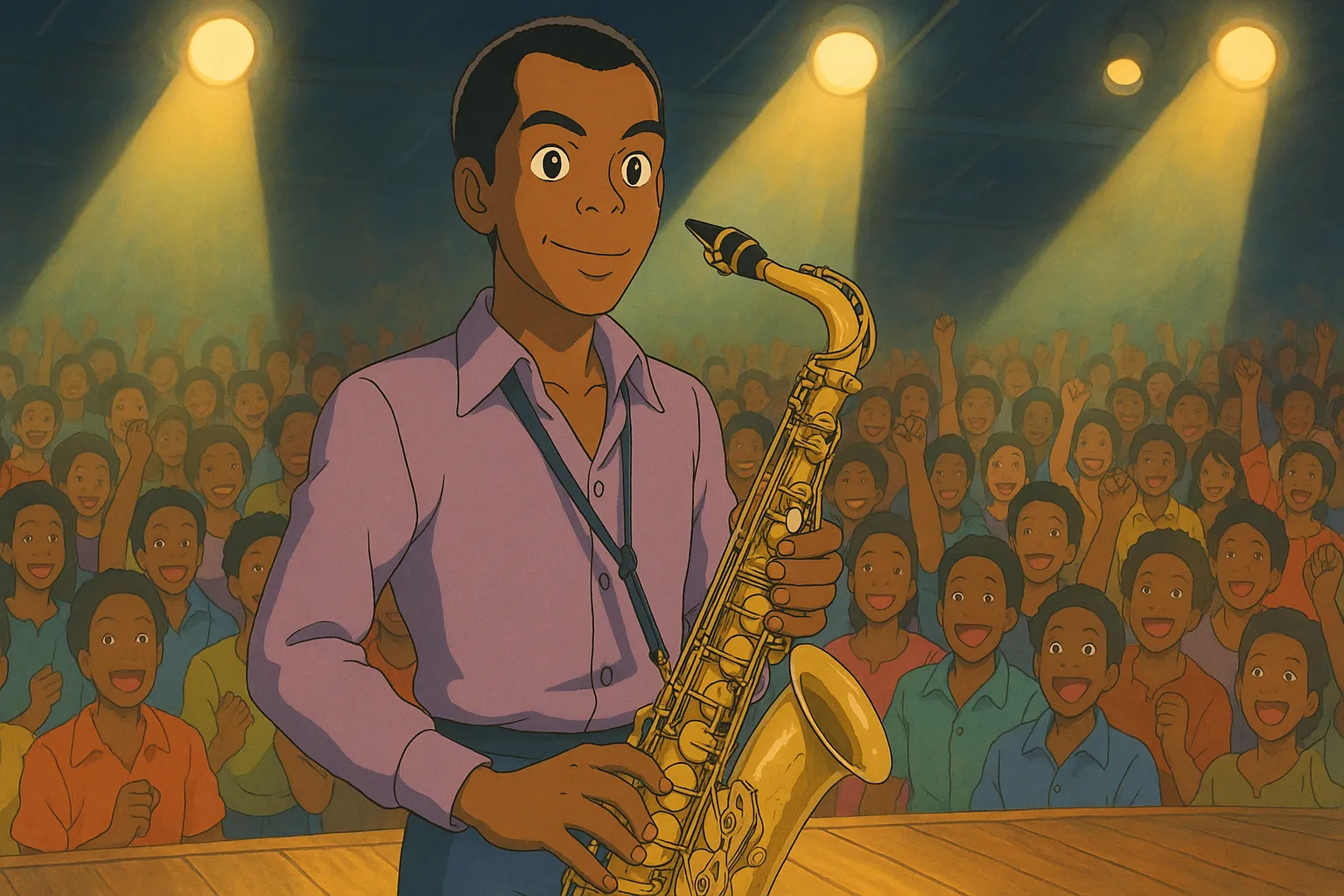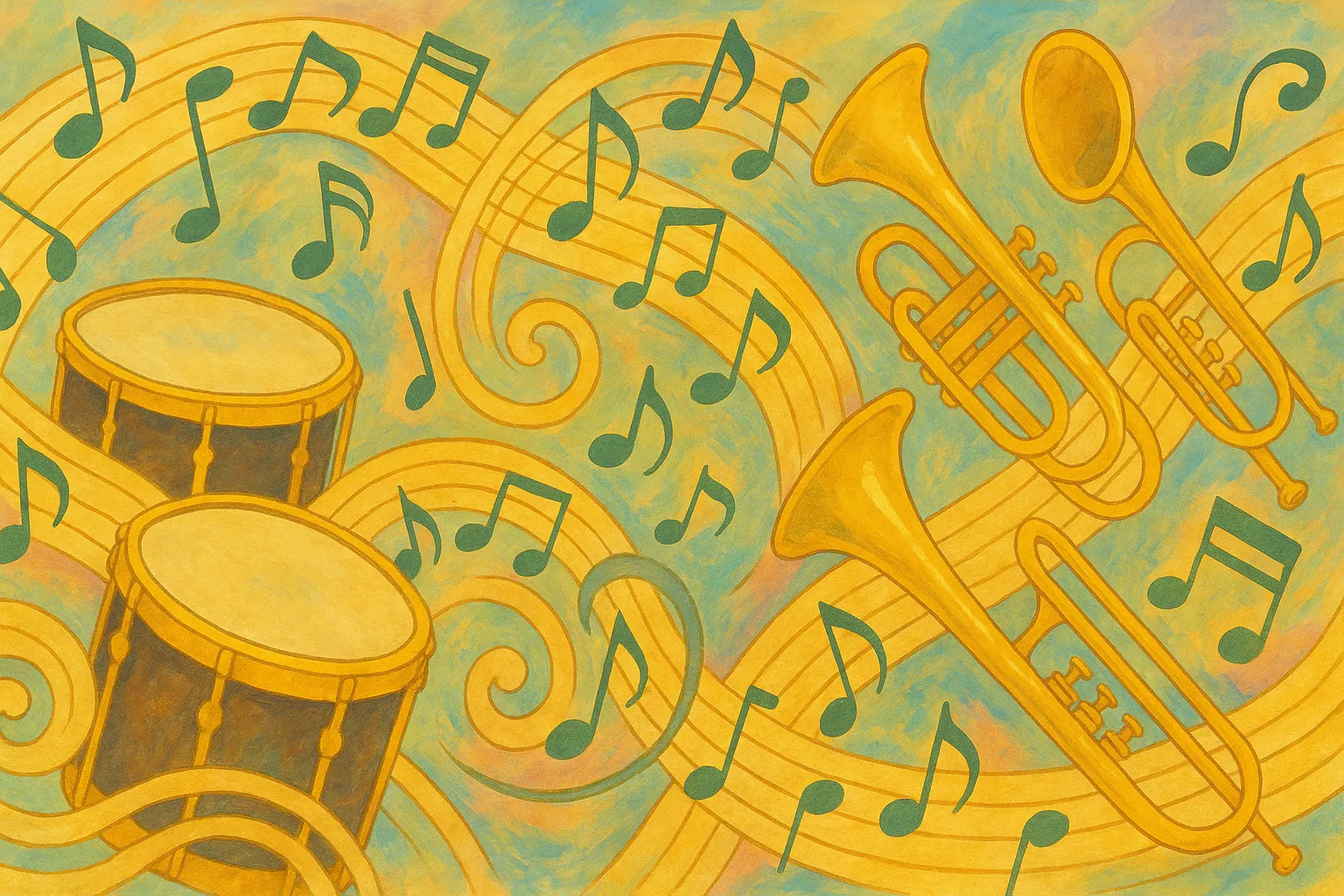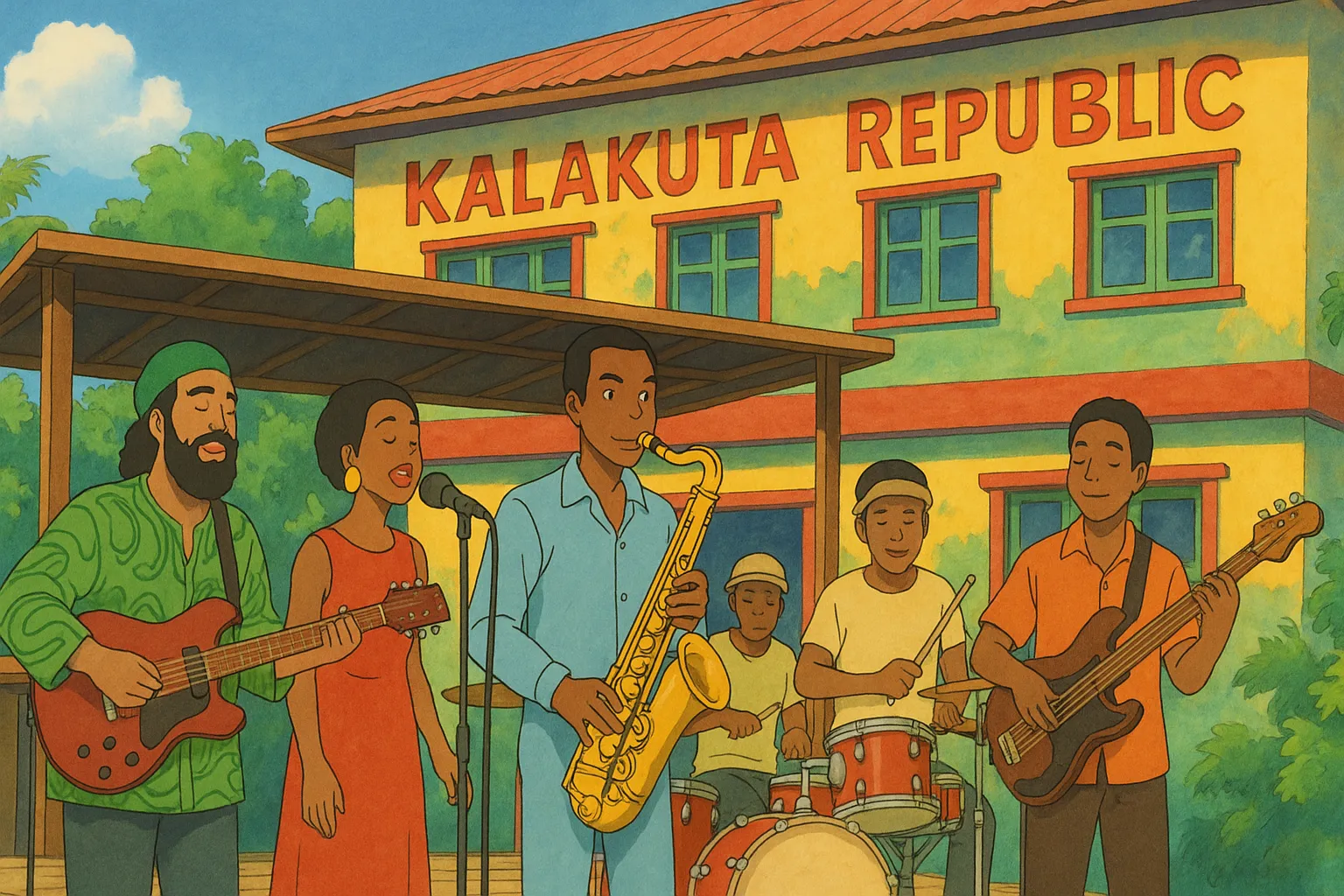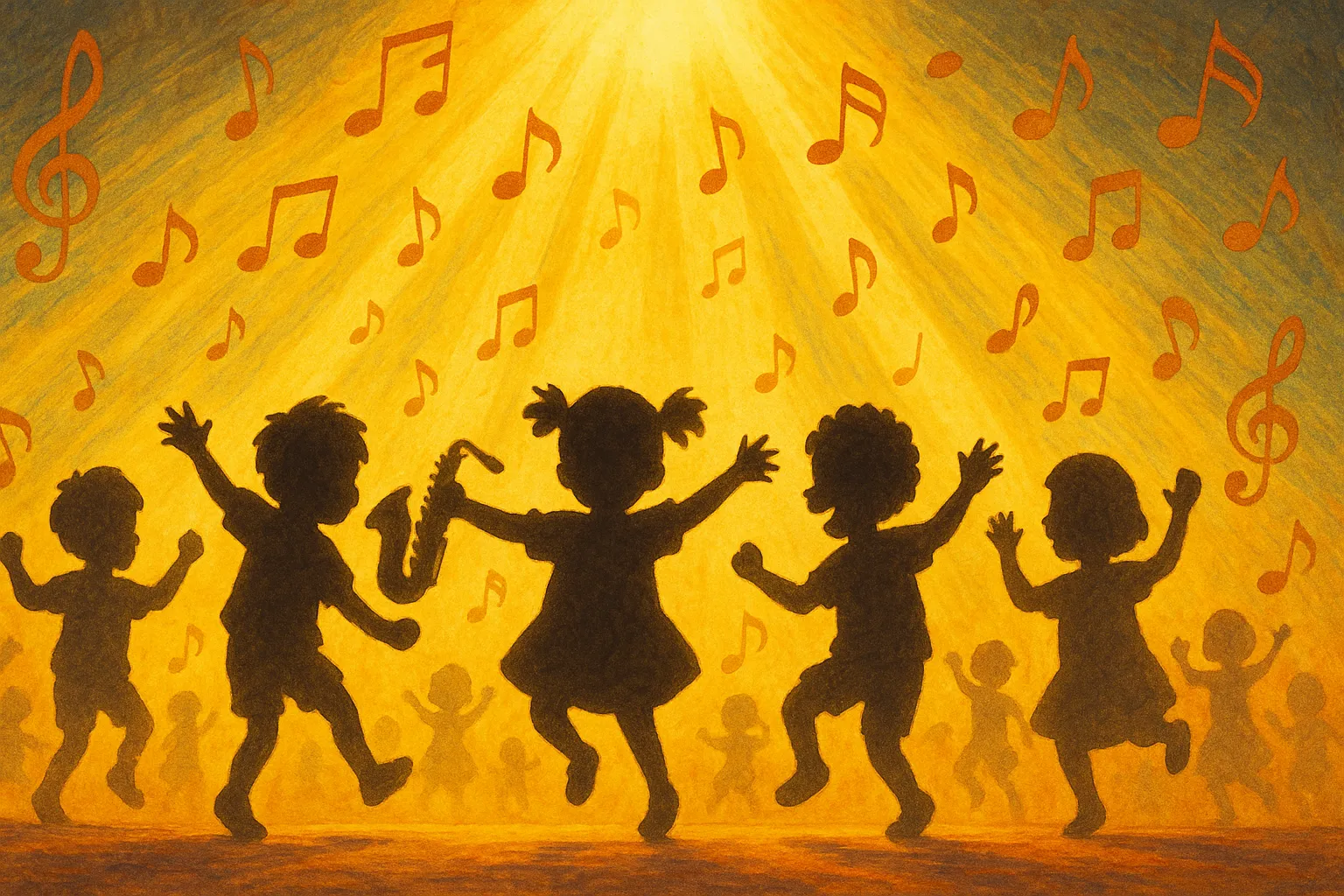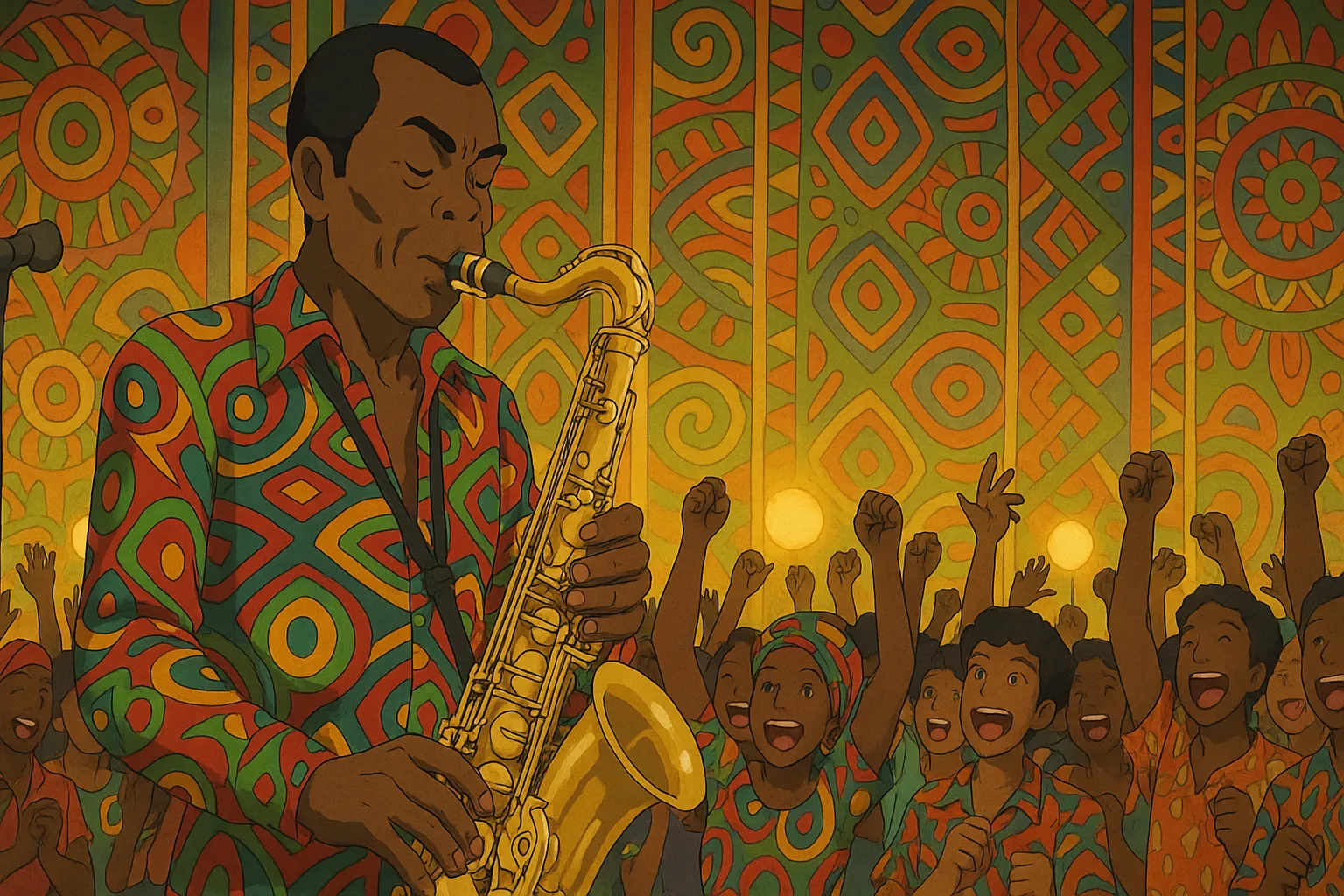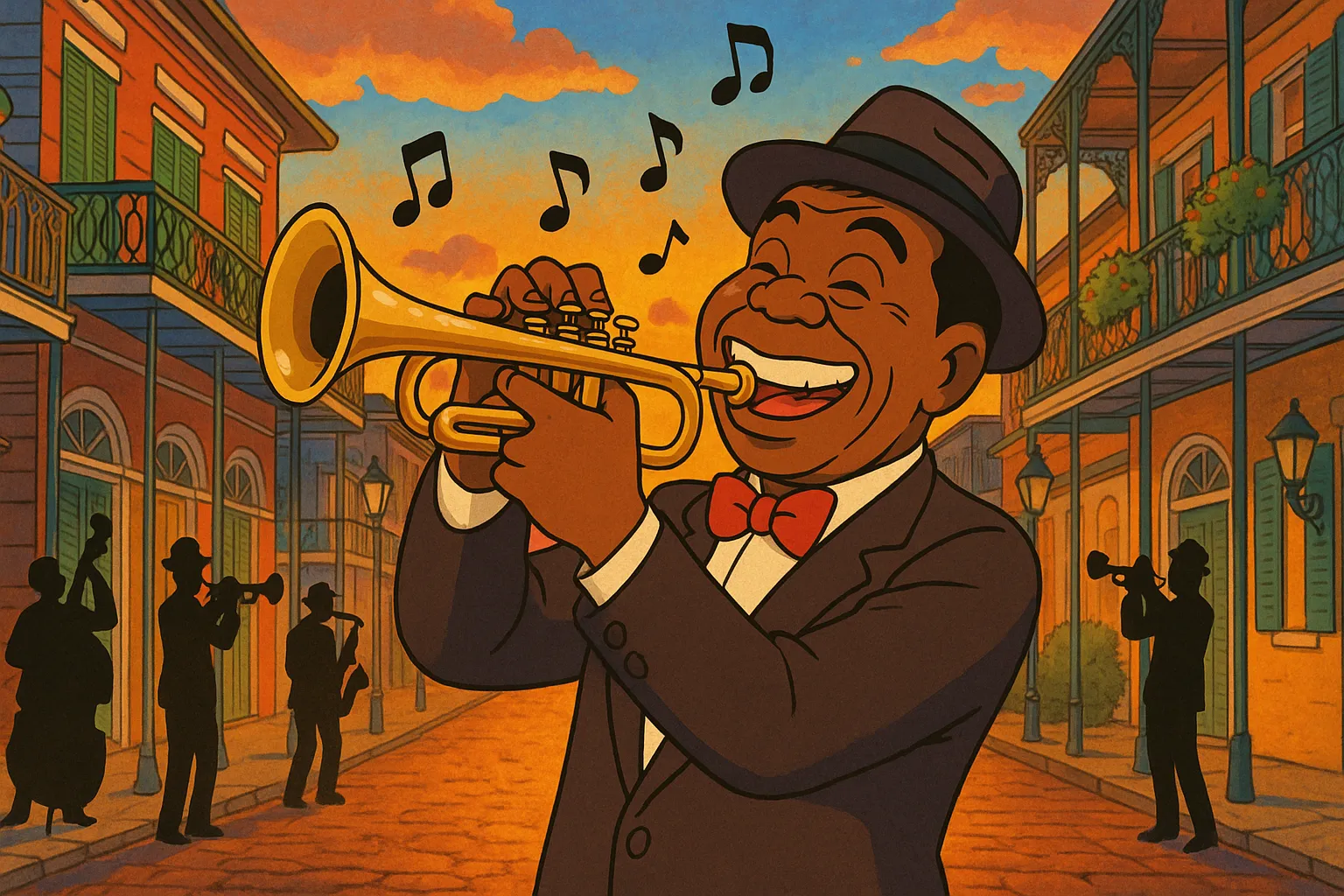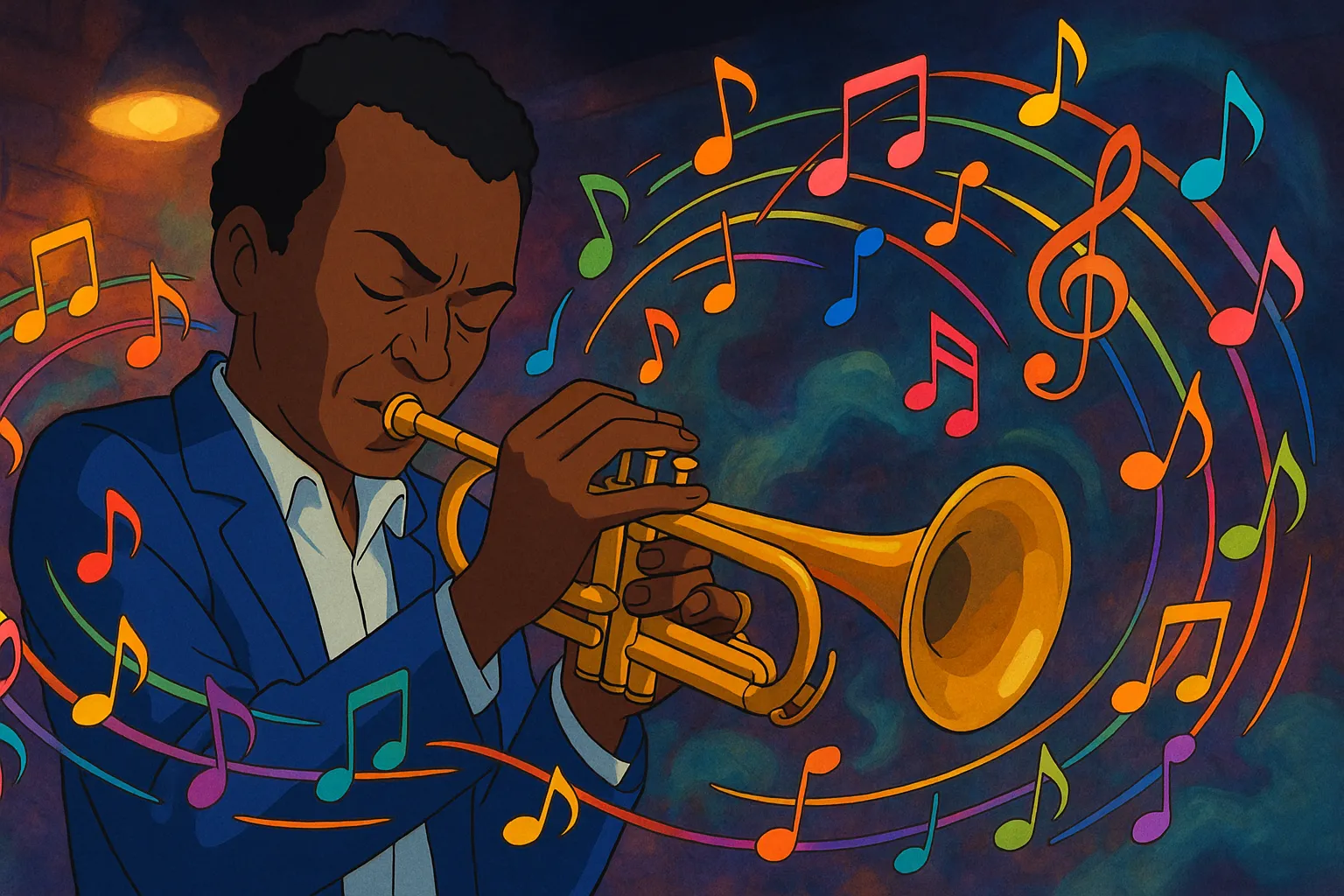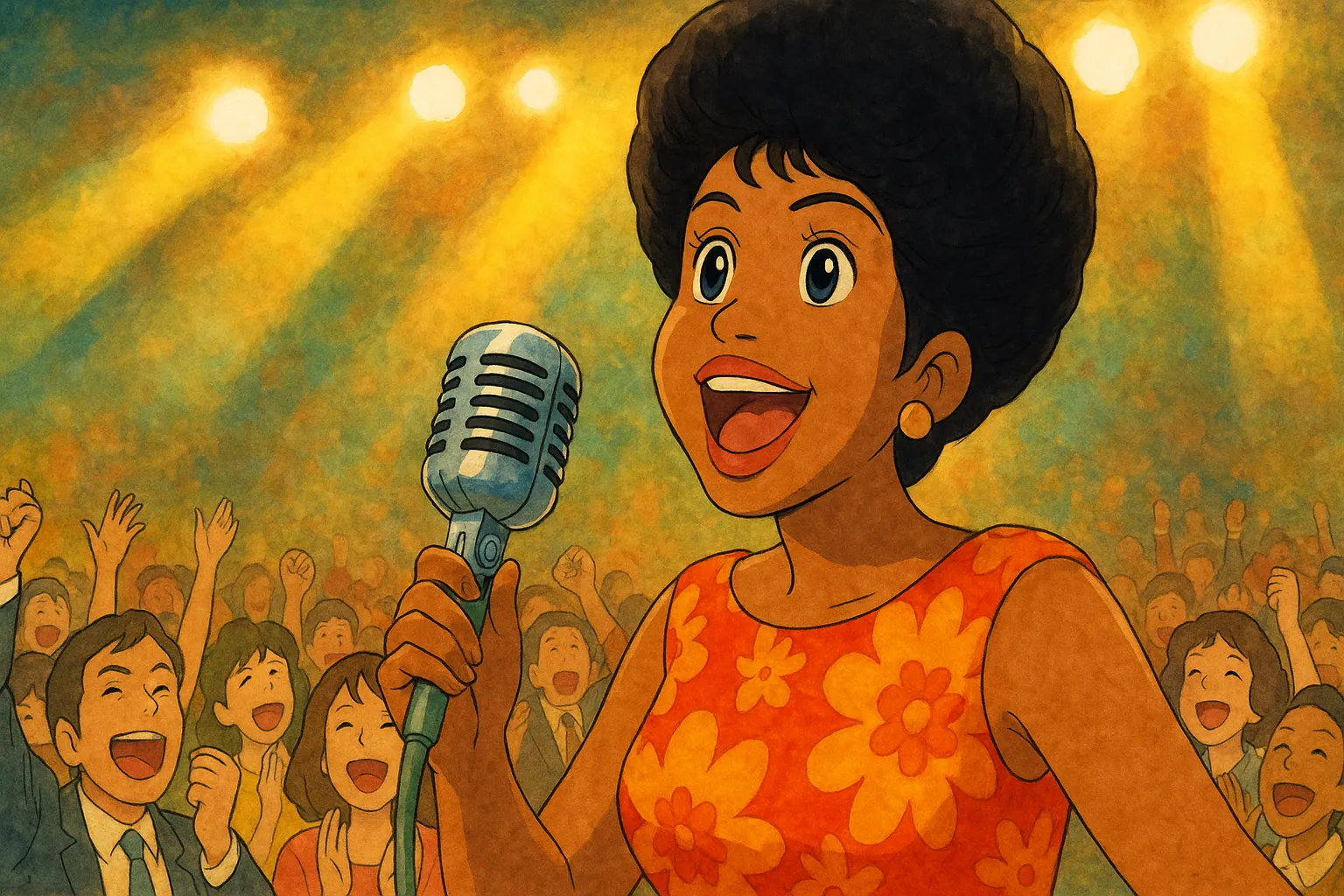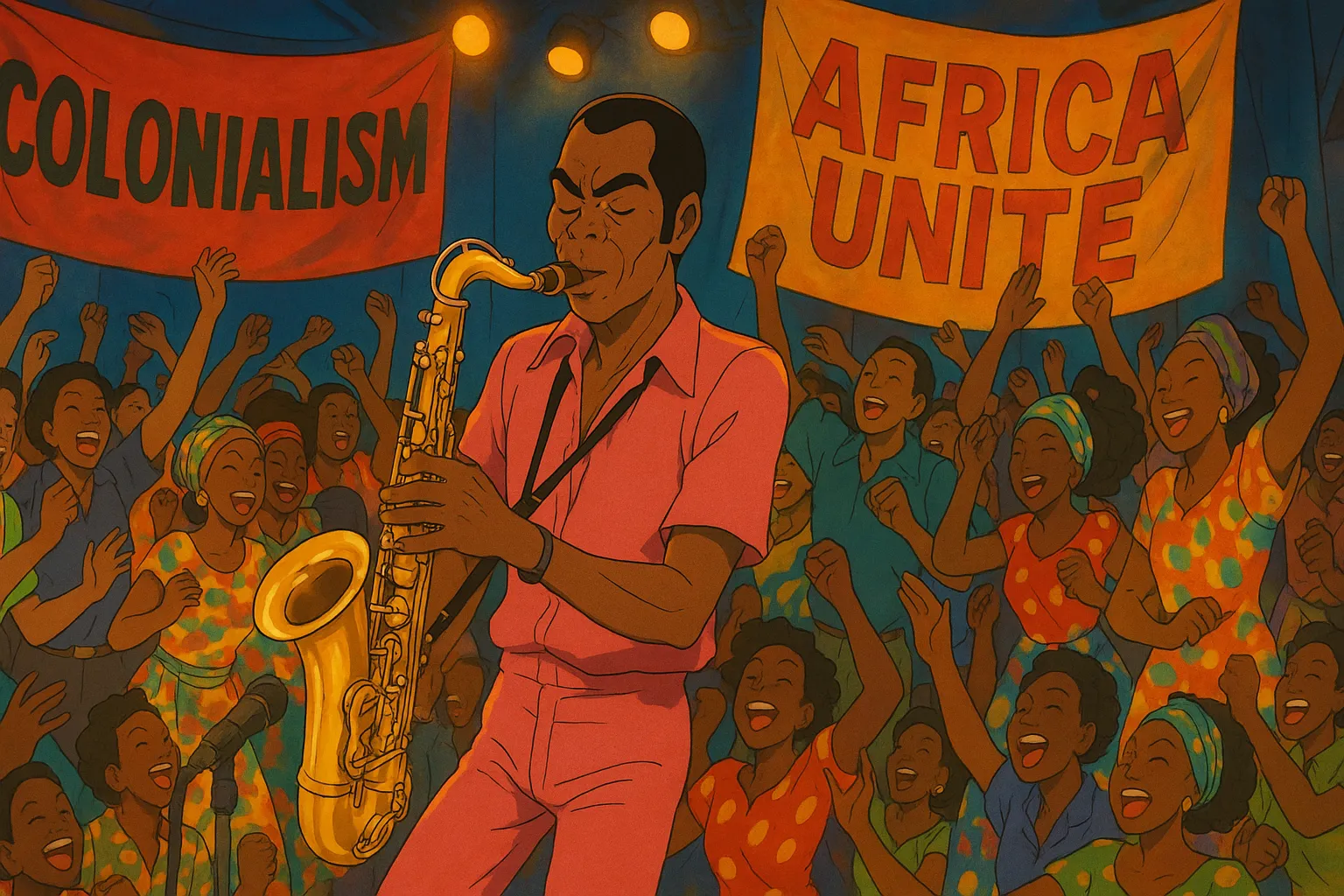
Frequently Asked Questions
What does "Anikulapo" mean?
Anikulapo is a Yoruba phrase often translated as “He who has death in his pouch” or “one who carries death,” a name Fela adopted to reject his colonial surname and assert a powerful identity.
Which instruments did Fela play?
He primarily played tenor saxophone and electric keyboards, in addition to singing and directing the horn-driven sound of his ensembles.
Where did he study music?
Fela studied music in London at the Trinity College of Music in the late 1950s, where he trained in classical and jazz techniques.
Who in his family influenced his political views?
His mother, Funmilayo Ransome-Kuti, was a prominent feminist and nationalist activist whose example strongly shaped Fela’s political outlook.
Did any of his children become musicians?
Yes. His sons Femi Kuti and Seun Kuti are prominent musicians who continue to perform and evolve the Afrobeat tradition.
What was unusual about his live shows?
Fela was known for marathon concerts that could last several hours, combining long musical grooves, impassioned political speech, and theatrical performance.
How is he remembered in modern culture?
His legacy includes the New Afrika Shrine in Lagos, a 2009 Broadway musical called "Fela!", and widespread influence on global artists and music sampling.
